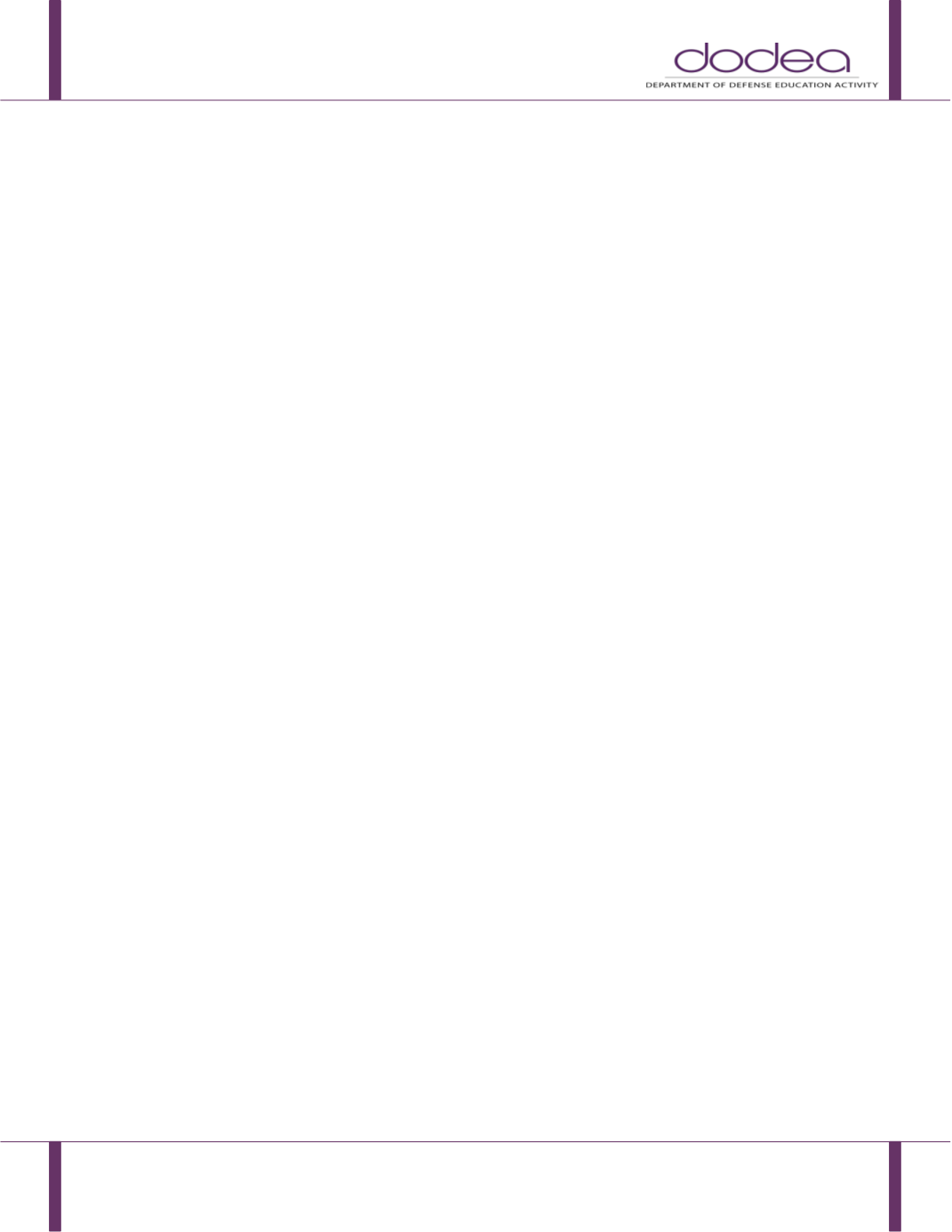

1342.12 Companion
July 12, 2017
Page 179
The term does not apply if a child’s educational performance is adversely affected primarily because the
child has an emotional disturbance. Art
“Behavioral intervention plan”
BIP means a plan that utilizes positive behavioral interventions and
supports to address behaviors that interfere with the learning of students with disabilities or with the
learning of others or behaviors that require disciplinary action.
“Business day”
means Monday through Friday, 12 months of the year, exclusive of federal holidays and
state holidays.
“Calendar days”
means consecutive days, inclusive of Saturdays and Sundays. Whenever any period of
time fixed by calendar days expire on a Saturday, Sunday, or federal holiday, the period of time for
taking such action shall be extended to the next day, not a Saturday, Sunday, or federal holiday.
“Career and technical education”
means organized educational activities that offer a sequence of
courses that:
1)
Provides individuals with the rigorous and challenging academic and technical knowledge and
skills the individuals need to prepare for further education and for careers (other than careers
requiring a master’s or doctoral degree) in current or emerging employment sectors;
2)
May include the provision of skills or courses necessary to enroll in a sequence of courses that
meet the requirements of this subdivision; or
3)
Provides, at the postsecondary level, for a one-year certificate, an associate degree, or industry-
recognized credential and includes competency-based applied learning that contributes to the
academic knowledge, higher-order reasoning and problem-solving skills, work attitudes, general
employability skills, technical skills, and occupational-specific skills.
“Caseload”
means the number of students served by a certified special educator.
“Case Study Committee”
(CSC) means a school-level multidisciplinary team, including the child’s
parents, responsible for making educational decisions concerning a child with a disability.
“Change in identification”
means a change in the categorical determination of the student’s disability by
the CSC that determines eligibility.
“Change in placement”
or
“change of placement”
means when the CSC places the student in a setting
that is distinguishable from the educational environment to which the student was previously assigned
and includes: 1. The student’s initial placement from general education to special education and related
services; 2. The expulsion or long-term removal of a student with a disability; 3. The placement change
that results from a change in the identification of a disability; 4. The change from a public school to a
private day, or residential program; from a private day, or residential program, to a public school; or to a
placement in a separate facility for educational purposes; 5. Termination of all special education and
related services; or 6. Graduation with a standard or advanced studies high school diploma. A “change
in placement” also means any change in the educational setting for a student with a disability that does
not replicate the elements of the educational program of the student’s previous setting.
“Change in placement”
or
“change of placement,”
for the purposes of discipline, means: 1. A removal
of a student from the student’s current educational placement is for more than 10 consecutive school
days; or 2. The student is subjected to a series of removals that constitute a pattern because they
cumulate to more than 10 school days in a school year, and because of factors such as: a. The length of


















